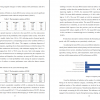Тема: The impact of ESG on financial performance of Chinese companies during COVID-19
Закажите новую по вашим требованиям
Представленный материал является образцом учебного исследования, примером структуры и содержания учебного исследования по заявленной теме. Размещён исключительно в информационных и ознакомительных целях.
Workspay.ru оказывает информационные услуги по сбору, обработке и структурированию материалов в соответствии с требованиями заказчика.
Размещение материала не означает публикацию произведения впервые и не предполагает передачу исключительных авторских прав третьим лицам.
Материал не предназначен для дословной сдачи в образовательные организации и требует самостоятельной переработки с соблюдением законодательства Российской Федерации об авторском праве и принципов академической добросовестности.
Авторские права на исходные материалы принадлежат их законным правообладателям. В случае возникновения вопросов, связанных с размещённым материалом, просим направить обращение через форму обратной связи.
📋 Содержание
2. LITERATURE REVIEW 6
3. METHODOLOGY 14
3.1 SAMPLE SELECTION 14
3.2 DESCRIPTIVE STATISTICS 16
3.3 THE EXPLANATION OF THE MODEL 22
3.4 THE RESULTS OF THE MODEL (ROA) 23
3.5 THE INTERPRETATION OF RESULTS (MODEL WITH ROA) 27
3.6 THE RESULTS OF THE MODEL (ROE) 29
3.7 THE COMPARISON OF RESULTS OF TWO MODELS 32
3.8 DISCUSSION 33
4. PRACTICAL IMPLEMENTATION 34
5. CONCLUSION 36
LIMITATIONS AND FURTHER DEVELOPMENT 37
REFERENCES 38
📖 Введение
The significance of ESG factors has been well-documented in numerous prior research studies. However, the present study aims to specifically investigate the dynamics of the influence of ESGbefore and after the COVID-19 pandemic. The COVID-19 pandemic has had detrimental effects on financial and stock markets globally due to the implementation of social distancing measures and lockdowns, resulting in a halt in economic activities. As an example, the market value of the S&P500 index has experienced a decline of approximately 30% since the emergence of COVID- 19 (Shehzad et al., 2020). Numerous countries, such as the United States, United Kingdom, China(Ashraf, 2020; Zhang et al., 2020) have witnessed declines in stock values. In other words, the COVID-19 pandemic, with its profound global impact, has further emphasized the significance ofESG indicators in assessing a company's resilience and long-term value creation.
This study focuses on the influence of ESG indicators on the financial performance of Chinese companies during the COVID-19 pandemic. The pandemic presented unprecedented challenges for businesses worldwide, with disruptions to supply chains, changes in consumer behavior, and economic volatility. Against this backdrop, understanding how ESG practices contributed to the financial performance of Chinese companies becomes crucial in gaining insights into their
resilience and adaptability during this challenging period. The findings are expected to contributeto both academic literature and practical decision-making, informing stakeholders about the significance of sustainable practices and highlighting the potential benefits of integrating ESG considerations into business strategies.
Problem Statement: The goal of this study is to investigate the change of the influence of ESG indicators on the financial performance of Chinese companies during the COVID-19 pandemic.
The main research question of the study is how the influence of ESG indicators on financial performance of Chinese companies changed during the COVID-19 pandemic. The central inquiry of our study revolves around the evolving impact of ESG indicators on the financial performance of Chinese companies amidst the backdrop of the COVID-19 pandemic. This inquiry is important for several reasons. Firstly, as the world grapples with the aftermath of the pandemic, understanding how ESG considerations shape financial outcomes offers crucial insights into the resilience and adaptability of businesses in the face of unprecedented challenges. Secondly, China is a big player in the world economy, so what happens there can show us what's going on with sustainability and making money for businesses all around the world. By focusing on Chinese companies, we not only gain insights into localized dynamics but also contribute to the global discourse on sustainable finance. Moreover, given the heightened scrutiny on ESG practices in the wake of the pandemic, our study provides timely and relevant insights for investors, policymakers, and corporate stakeholders seeking to navigate the post-pandemic landscape effectively. Thus, by exploring the nexus between ESG indicators and financial performance in the Chinese context, our research endeavors to provide actionable insights that contribute to the advancement of sustainable business practices and financial resilience in a rapidly changing world. The thesis is structured as follows.
✅ Заключение
Firstly, the analysis relies on ESG scores and financial data from specific sources, which may not capture the full spectrum of ESG activities and their impacts. Variations in data quality and reporting standards across companies can introduce inconsistencies and biases in the results. Future research could expand the dataset to include a broader range of ESG metrics and sources, enhancing the comprehensiveness and accuracy of the analysis.
The study covers a relatively short period, focusing primarily on the years around the COVID-19 pandemic. While this provides a snapshot of ESG performance during a crisis, it may not fully capture long-term trends and the enduring impacts of ESG initiatives on financial performance. Extending the study period to include pre- and post-pandemic years would allow for a more thorough investigation of long-term ESG impacts.
The significant government support provided to Chinese companies during the pandemic is another unique factor that may not be generalizable to other contexts or countries. This support likely influenced the financial outcomes observed in this study, and the results might differ in settings with less governmental intervention. Comparative studies across different countries with varying levels of government support could shed light on these contextual differences.
Moreover, the study is specific to China, where cultural, regulatory, and economic conditions differ from other regions. These contextual factors play a crucial role in shaping the relationship between ESG performance and financial outcomes, limiting the generalizability of the findings to other countries or regions. Expanding the geographic scope of future research could provide more globally applicable insights.
By recognizing these limitations and pursuing these avenues for further development, future studies can provide a more comprehensive and nuanced understanding of the relationship between ESG performance and financial outcomes. This will enhance the robustness and generalizability of the findings, offering more actionable insights for policymakers, investors, and corporate managers.




